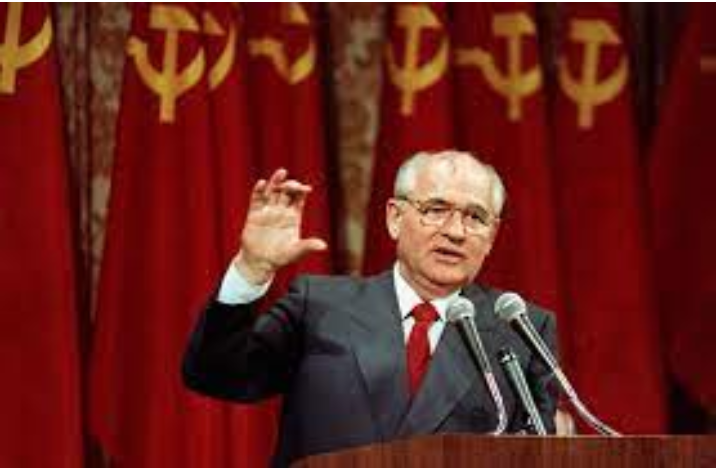Former Soviet President Dies at 91
September 22, 2022
Recently, Mikhail Gorbachev, former president of the Soviet Union, died at the age of 91. Hailed as a hero of democracy, Gorbachev was the last leader of the Soviet Union and led the dissolution of the USSR (Union of Soviet Socialist Republics). While his actions were heavily scrutinized by his fellow Russians, he ultimately ended the Cold War and ushered in an era of relative peace among the world superpowers.
Born on March 2, 1931, Gorbachev first started working as a deputy director of the propaganda department of the Komsomol, the youth division of the Soviet Union. Slowly, bit by bit, he gradually gained more power until he became the First Secretary of the Komsomol in 1961. In 1968, Gorbachev was promoted to head of the Stavropol Region, automatically becoming a member of the Central Committee of the Communist Party of the Soviet Union and was notably much younger than his compatriots. After working in the CPSU for another 17 years, Gorbachev was finally chosen as the General Secretary, effectively becoming the leader of the Soviet Union. “I couldn’t wait to get to the most powerful position, because I thought then I would be able to fix problems that only the leader can fix. But when I got there, I realized we needed revolutionary change,” he said, after rising to power.
As General Secretary, Gorbachev took on a more moderate style of government and implemented numerous reforms. Domestically, he limited the power of his ministers and reintroduced the idea of industrial automation to Russia, a policy known as Perestroika. On an international scale, Gorbachev drastically altered the political landscape of the world, particularly in the Balkan States of Eastern Europe. He lifted the “Iron Curtain” by allowing the destruction of the Berlin Wall, releasing Eastern Germany as well as other European territories such as Czechoslovakia from Communist rule, formally ending the Cold War. While the rest of the world praised his progressive actions, even awarding him a Nobel Peace Prize in 1990, he received an abundance of criticism from his own citizens. Despite the hate from his people, Gorbachev believed that he lived a fulfilling life. “My life’s work has been accomplished. I did all that I could,” he said, when he stepped down from politics.
As students, many of us have not heard about Mikhail Gorbachev outside of an occasional mention during history class. Just like many other important historical figures, we often overlook the impact that our predecessors have, especially people of foreign descent. But Gorbachev’s actions have shaped the world that we live in today. It’s rare to see leaders who act for the greater good. It’s even rarer for leaders to be able to handle immense pressure and scrutiny from their own people. For that, we should try to remember Mikhail Gorbachev as a trailblazer who paved a path of peace and compromise.

